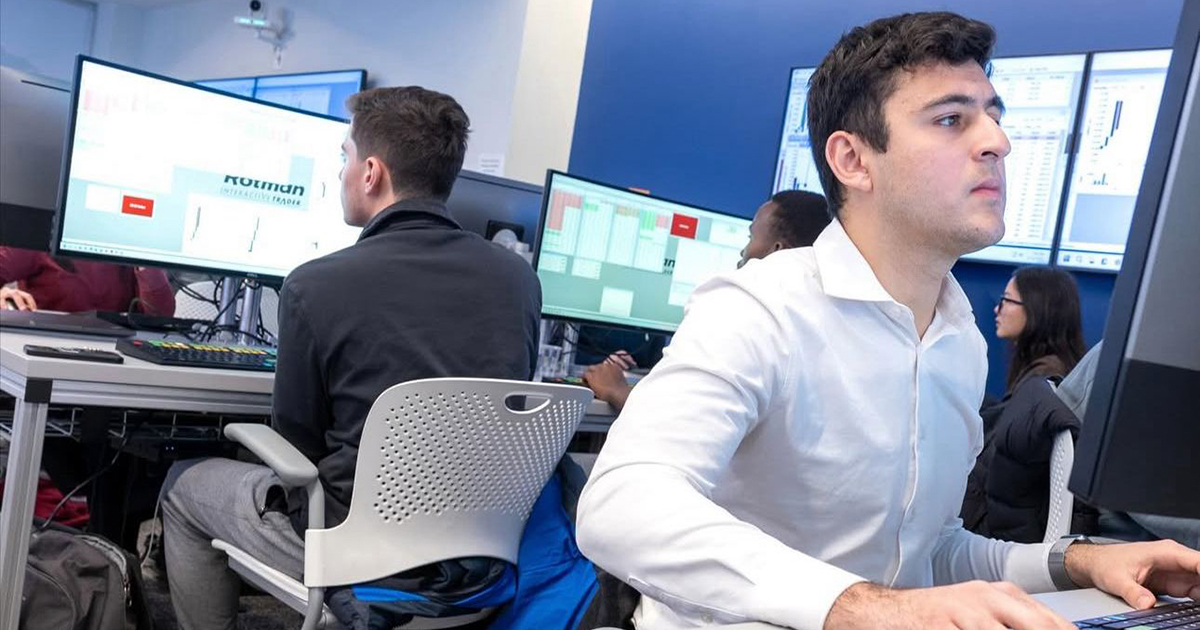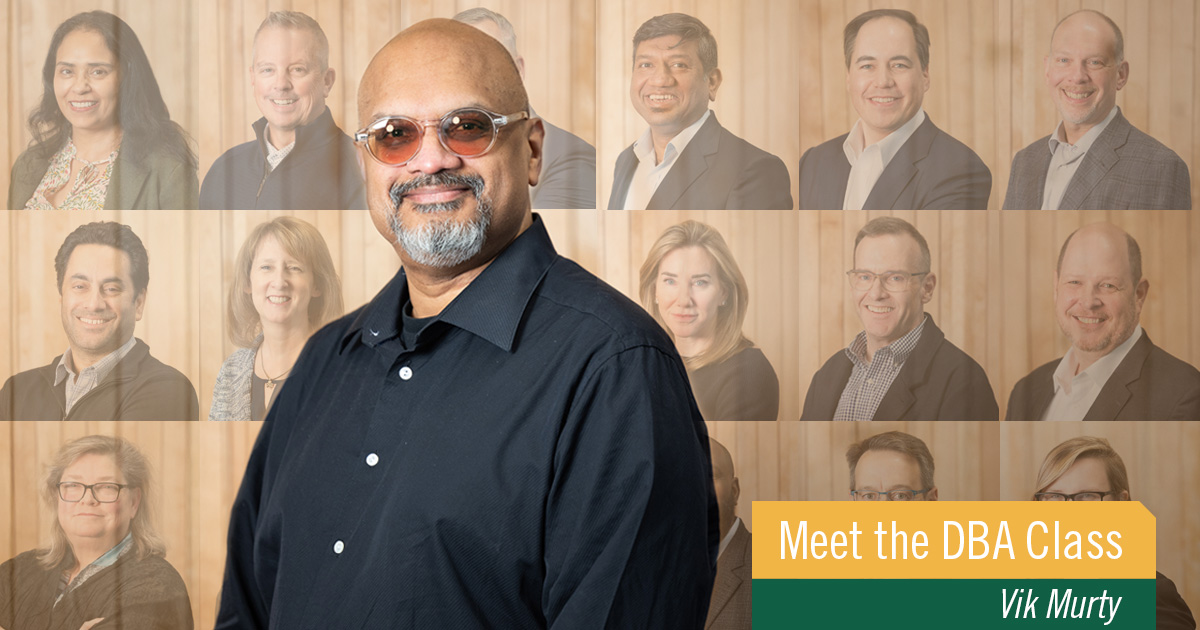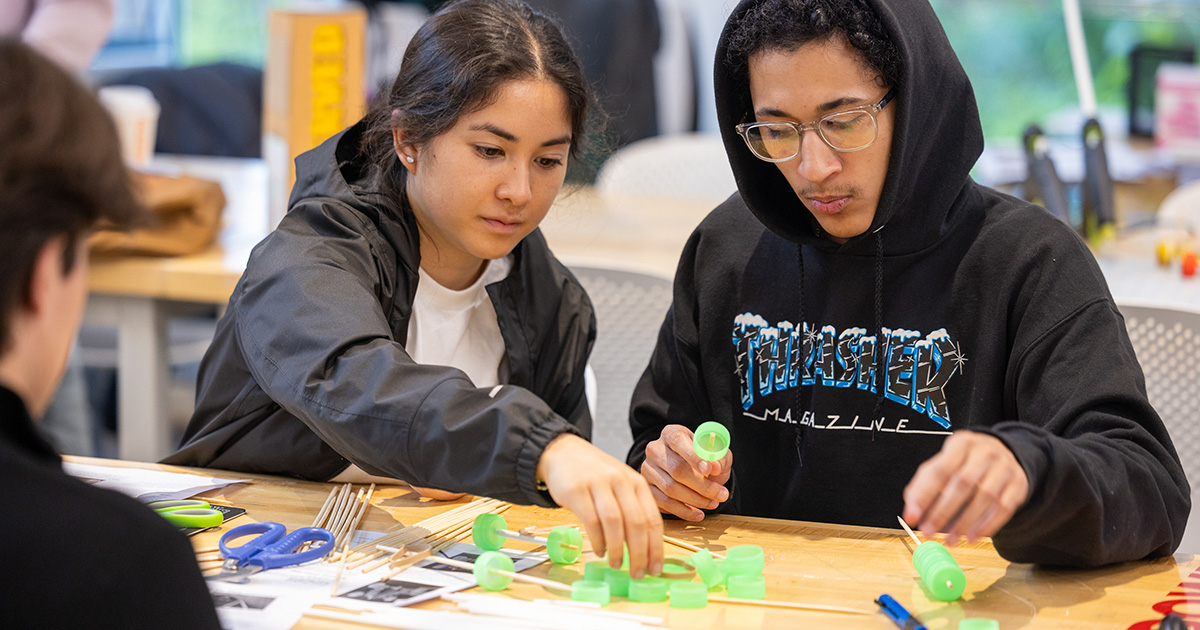Linking Science and Liberal Arts to Create a Unique Experience for Students and Faculty

Professor Marjorie Feld has taught history and society at Babson College since 2001.
But, her approach as a professor has changed dramatically this semester since collaborating with Assistant Professor David Blodgett, a science thought leader, to teach a socio-ecological systems course, Feeding the Modern United States.
“I can’t teach the way I used to teach,” Feld said. “I’ll have to integrate science and environmental components.”
Collaboration is key throughout Babson classrooms. By putting their minds together, students, and faculty, are able to unearth a wealth of new perspectives, sparking a unique learning experience on both sides of the desk.
Educating Our Future Entrepreneurial Leaders
Feeding the Modern United States was born out of Blodgett’s longtime Sustainable Food Systems course and a course Feld taught on U.S. labor history. Fittingly, the idea to collaborate and combine their expertise came together through a conversation about Blodgett’s thesis on the country’s greenest state, Vermont.
That discussion led to an experiment of sorts, one that would bring both professors to each other’s classrooms to teach a handful of lessons from their respective vantage points. And, those special appearances culminated in this semester’s class, which studies the science of farming, soil, and genetically engineered foods, as well as the history of agricultural labor, indigenous food practices, and the role of government and business in food systems.
“We want the world to be better,” Feld said. “We’re trying to teach students to think in terms of these systems, so they can make it better.”
Feeding the Modern United States is one of the five initial socio-ecological systems courses to be rolled out, all of which apply diversity, equity and inclusion concepts and ethical frameworks to address sustainability challenges, reframe and critique situations based upon understanding ecological integrity and structural injustice, help learners develop complex integrated systems-thinking skills, and stress the use of creativity, imagination and innovation to predict and solve problems.
Learning from Each Other
Alexa Tutecky ’21 said the collaboration between Feld and Blodgett has created “an atmosphere of consistently rich and illuminating discussion.”
“This unique teaching environment has allowed students to gain a deep understanding of complex scientific issues, while connecting it to the human element of why a meaningful commitment to sustainability and justice are vital for creating an effective global food system,” Tutecky said.
For classmate Lauren Park ’20, the course has heightened her learning experience, “elevating engagement during in-class discussions and content of the course that enables deep connections and all-embracing purpose of the study.”
“We want the world to be better. We’re trying to teach students to think in terms of these systems, so they can make it better.”
Professor Marjorie Feld
In this extraordinary environment, the students aren’t the only ones learning, Feld says.
“They are teaching us so much,” Feld said. “The students, they’re so smart. They’re getting so much out of it; we’re probably getting even more.”
Thanks to the students’ engagement, the learning experience between the faculty is fueling future collaboration and influencing future classes.
“Some of the contributions they make to class, we’ve got lots of different ideas as to how we’re going to do this again in a year,” Blodgett said. “We’re really fortunate that we have excellent students. We can pull off each other’s strengths, and keep teaching each other.”
Posted in Community




